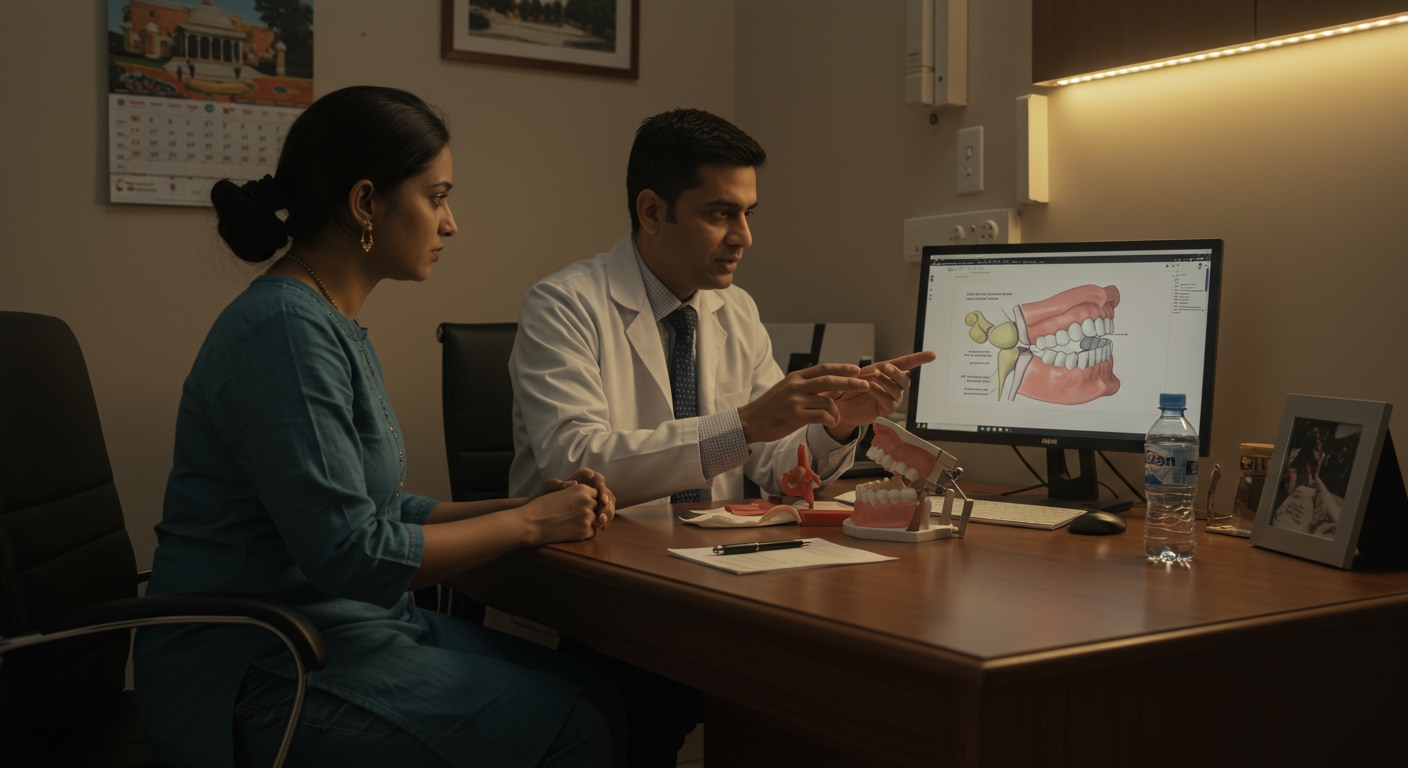What Are TMJ Disorders?
TMJ disorders (jaw joint problems) affect the joint that connects your jaw to your skull. This joint is called the temporomandibular joint, or TMJ. Many people experience jaw pain, jaw clicking, or trouble moving their jaw. These issues are often signs of TMJ disorders. According to the National Institutes of Health, TMJ disorders are common and can affect people of all ages. However, they are more common in adults.
For example, you may notice pain when chewing or talking. Sometimes, your jaw may make a clicking or popping sound. In some cases, the jaw may even lock, making it hard to open or close your mouth. Because the TMJ is used so often, problems with this joint can affect daily life.
Causes of TMJ Disorders
There are several reasons why TMJ disorders may develop. Often, more than one factor is involved. Understanding these causes can help you manage jaw joint pain and prevent further problems.
In addition, habits like chewing gum often or biting your nails can make TMJ problems worse. According to the American Dental Association, these habits may increase the risk of jaw pain and jaw clicking.
Symptoms of TMJ Disorders
TMJ disorders can cause a range of symptoms. Some people have mild discomfort, while others may have severe pain. Recognizing these signs early can help you seek the right care.
Sometimes, these symptoms may come and go. However, if you notice jaw joint pain or jaw clicking that lasts more than a few days, it is important to talk to a dental specialist. Early treatment can prevent the problem from getting worse.
When to Seek Help
Although mild TMJ symptoms may improve on their own, ongoing pain or trouble moving your jaw needs attention. For instance, if you have trouble eating, speaking, or sleeping due to jaw pain, do not wait. A dental specialist can check your jaw and suggest the best treatment. The Centers for Disease Control and Prevention (CDC) recommends seeing a professional if jaw pain affects your daily life.
Conclusion
TMJ disorders (jaw joint problems) can cause pain, jaw clicking, and trouble moving your mouth. Because these symptoms can affect eating and speaking, it is important to understand the causes and signs. If you notice ongoing jaw pain or other symptoms, consult a dental specialist for personalized advice on TMJ disorders.

